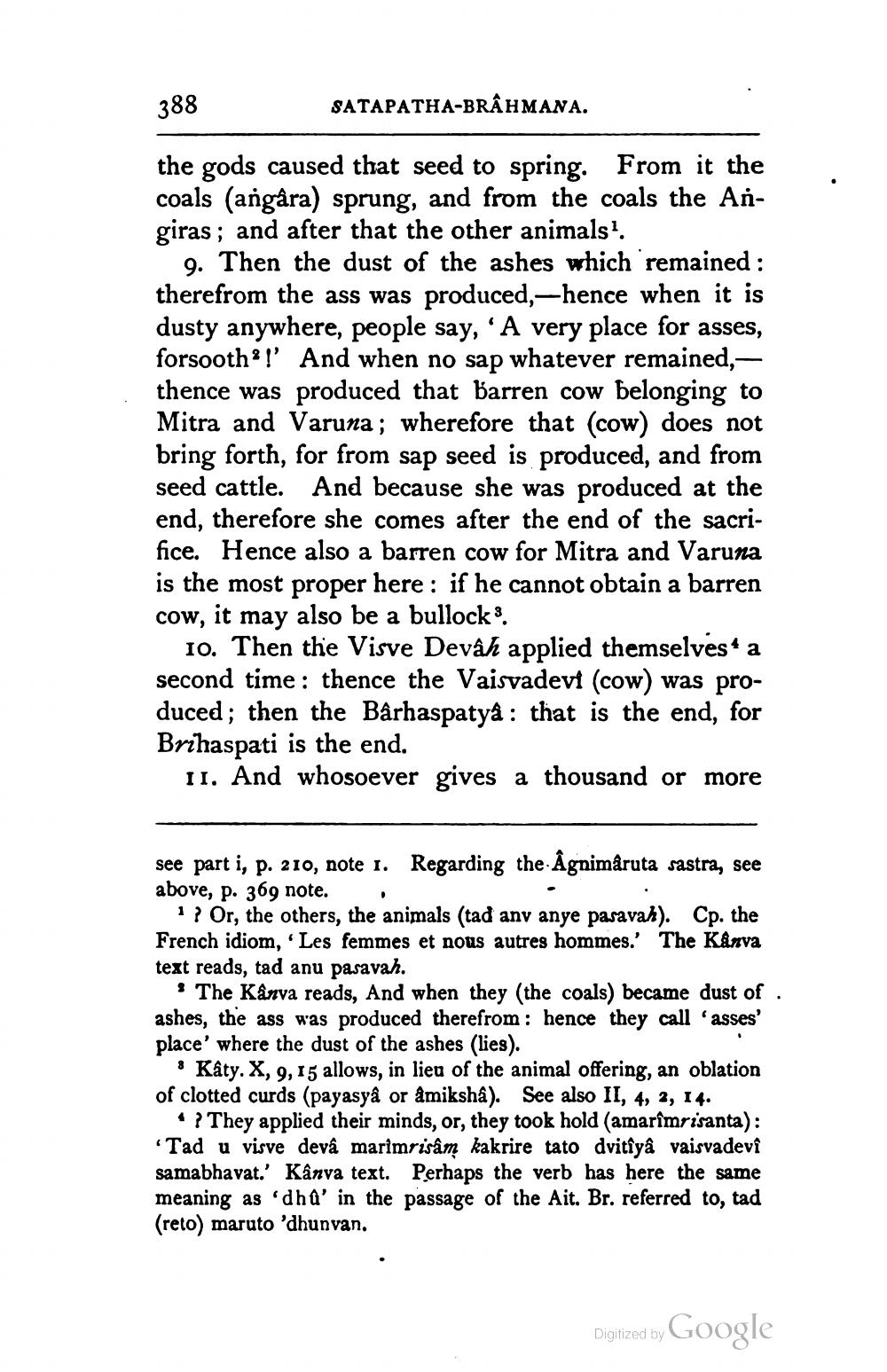________________
388
SATAPATHA-BRÂHMANA.
the gods caused that seed to spring. From it the coals (angåra) sprung, and from the coals the Angiras; and after that the other animals?.
9. Then the dust of the ashes which remained : therefrom the ass was produced,-hence when it is dusty anywhere, people say, 'A very place for asses, forsooth? !' And when no sap whatever remained, - thence was produced that barren cow belonging to Mitra and Varuna; wherefore that (cow) does not bring forth, for from sap seed is produced, and from seed cattle. And because she was produced at the end, therefore she comes after the end of the sacrifice. Hence also a barren cow for Mitra and Varuna is the most proper here: if he cannot obtain a barren cow, it may also be a bullocks.
10. Then the Visve Devâh applied themselves* a second time: thence the Vaisvadevi (cow) was produced; then the Bârhaspatya: that is the end, for Brihaspati is the end.
11. And whosoever gives a thousand or more
see part i, p. 210, note 1. Regarding the Âgnimâruta sastra, see above, p. 369 note.
17 Or, the others, the animals (tad any anye pasaval). Cp. the French idiom, Les femmes et nous autres hommes.' The Kånva text reads, tad anu pasavah.
• The Kånva reads, And when they (the coals) became dust of . ashes, the ass was produced therefrom: hence they call'asses' place' where the dust of the ashes (lies).
Kâty. X, 9, 15 allows, in lieu of the animal offering, an oblation of clotted curds (payasya or amiksha). See also II, 4, 2, 14.
'? They applied their minds, or, they took hold (amarîmrisanta): Tad u visve devâ marimrisâm kakrire tato dvitîyâ vaisvadevi samabhavat.' Kanva text. Perhaps the verb has here the same meaning as 'dh d' in the passage of the Ait. Br. referred to, tad (reto) maruto 'dhunvan.
Digitized by Google




